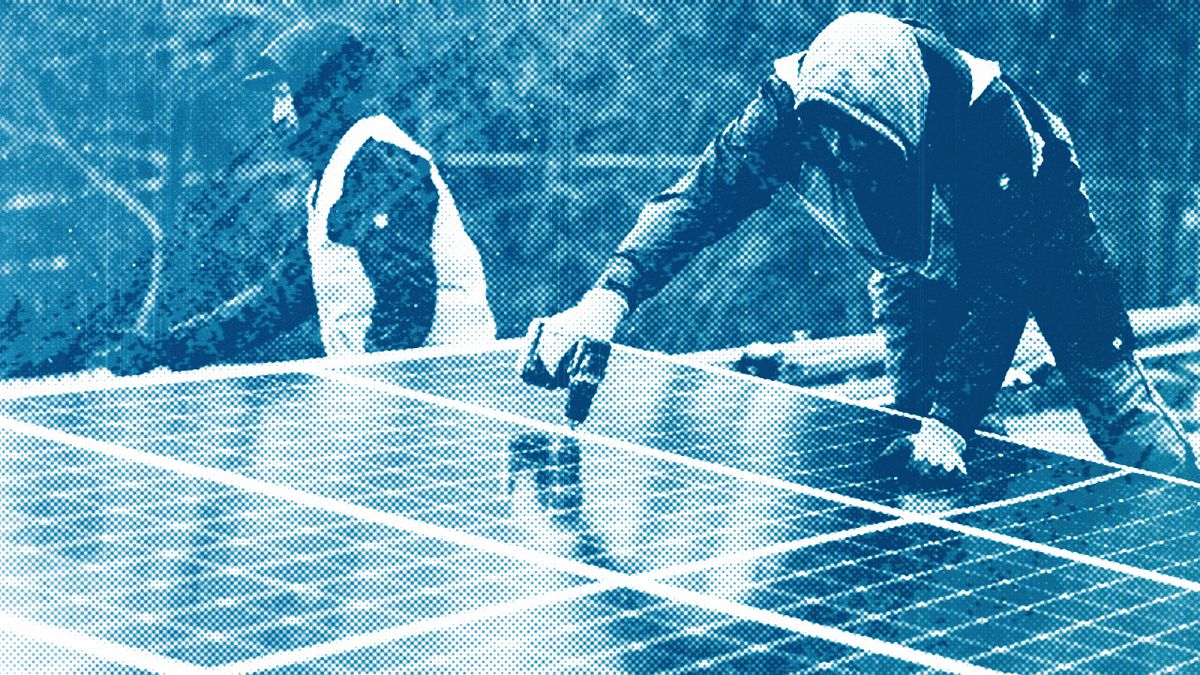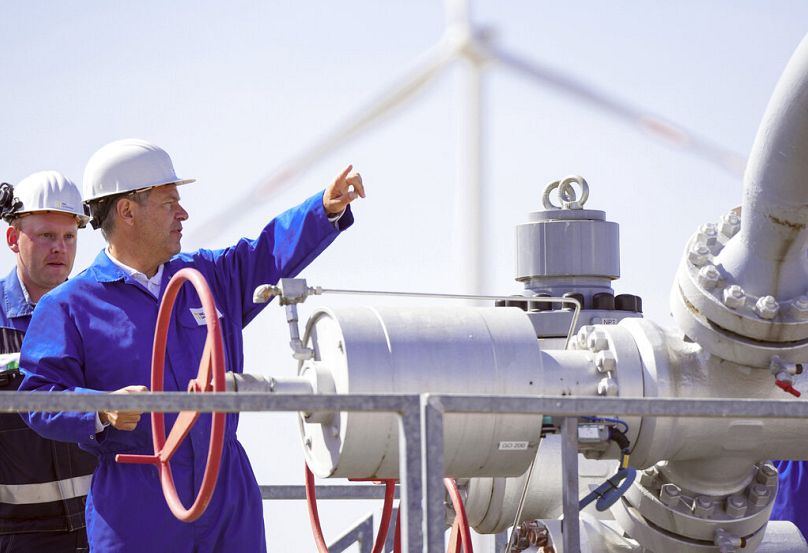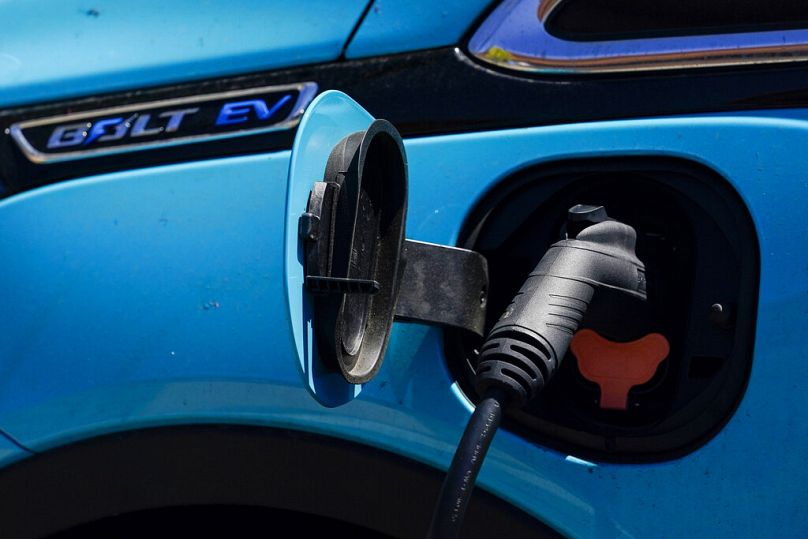The IRA is, above all, a “call to action” that Europe’s clean technology leadership must embrace. However, the EU's competitiveness does not rely on public finance alone, European Climate Foundation CEO Laurence Tubiana writes.
Europe has always been a leader in the fight against climate change. The United States' recent commitment to catching up is cause for celebration, not concern.
Yes, greening our industries and attracting innovators will entail competition with trade partners as we jostle to create growth and jobs under new economic conditions.
But the race to Net Zero can only be held — and won — if it generates momentum.
Ultimately, slashing emissions is our best bet for long-term prosperity, and the EU is facing the challenge with its eyes wide open.
Brussels should nudge its partners along the way
While working on the Paris Agreement, it was clear that the path to Net Zero could not solely depend on states or public money alone.
It required everyone based on a desirable future embraced by citizens, industry, and commerce alike.
Since Paris, many corporate and industrial actors have shown good faith along the path. It is now the EU’s job to nudge them along the way as we enter the next phase of the climate fight.
It’s clear that investing in a clean economy is the best way to secure a prosperous future and tackle inflation concurrently.
US President Joe Biden’s Inflation Reduction Act proves that this is finally being understood.
The bill itself underlines the growing potential of clean manufacturing through a raft of financial subsidies to support clean industry. It is also a long-awaited competitive boost for clean production globally.
Investments in clean energy have grown everywhere, but we’re still far off the mark, and the trend must rapidly increase over the coming decade if we are to keep global temperature rises below 1.5ºC.
A new and welcome phase in climate fight
While key pieces of European climate regulation under the "Fit for 55" package are being concluded by lawmakers, the EU is now forging its own industrial strategy alongside the IRA, with a new focus on incentivising clean growth to support its 2030 climate target and create security for green investors.
Some have described the US IRA's $369 billion (€343bn) clean tech package as an 'ice bucket' moment for European industrial strategy.
While the EU's attempts to design meaningful industrial strategies have often lacked urgency, the IRA shows that we have entered a new and welcome phase in the climate fight.
Building upon existing climate laws and policies, Brussels must identify the path to a socially-just economic and industrial paradigm that prioritises enterprise and innovation rather than solely underpinning the profitability of existing value chains.
From setting targets to boost EVs (electric vehicles) and phasing out the ICE (Internal Combustion Engine) to enacting sweeping recovery plans focused on renewables energy investment with clear green criteria and establishing a comprehensive carbon market: Europe has any number of good precedents to emulate.
EU's green transformation depends on the people
A global race to scale up clean manufacturing is commendable if it brings about lasting climate and socio-economic benefits. The four pillars of the Green Deal Industrial Plan, announced by President Von der Leyen, provide a solid basis to make this happen.
The IRA is, above all, a “call to action” that Europe’s clean technology leadership must embrace. However, the EU's competitiveness does not rely on public finance alone.
In preserving European competitiveness, we must not merely direct public money to the old carbon-intensive industrial base and shore up the fossil-fueled status quo.
Europe must set clear performance conditions linked to subsidies, including state aid, and require commitments from companies to decarbonise their value chains and invest in European production while not neglecting third-country trading partners.
Clean-tech expansion must go hand-in-glove with clean energy infrastructure rollout. Greater support through RePowerEU should target renewables deployment by streamlining the permitting process to overcome Europe’s energy cost gap with its competitors.
Manufacturing investment will place greater demands on European labour markets. The EU has an obligation to provide the right conditions for job creation and support skills and training of clean production workers, and those transitioning from the old carbon economy.
The EU green industry transformation depends on the people, and we must embark on this together and seize the co-benefits it can bring.
It's not all about money
The EU’s Green Deal is the most advanced regulatory climate change framework in the world and is currently the best-in-class implementation plan of the Paris Agreement.
In its enactment, Europe has proven itself to be an exemplary and reliable global player.
Now, the EU’s companion to the IRA demands bold leadership to steer our economy in a prosperous new direction while protecting economic relations with its partners.
Deeper cooperation with the rest of the world will not only accelerate the international climate agenda but also reinforce EU security.
And where the IRA’s example shows that ambitious clean tech subsidies could not be achieved in Congress without significant concessions to fossil fuel interests, Europe can heed that lesson and enact a bolder version, which fully protects our green transition from “policy capture” by entrenched fossil fuel actors.
Supporting developing and emerging economies through initiatives like Just Energy Transition Partnerships and the EU’s external investment plans can boost clean tech exports and the green economic development of partner countries.
Ultimately, European leaders must see the US IRA not as a threat but as proof that the Old Continent was a step ahead. It’s time to keep the lead.
Laurence Tubiana is CEO of the European Climate Foundation and one of the key architects of the 2015 Paris Climate Agreement.
At Euronews, we believe all views matter. Contact us at view@euronews.com to send pitches or submissions and be part of the conversation.


